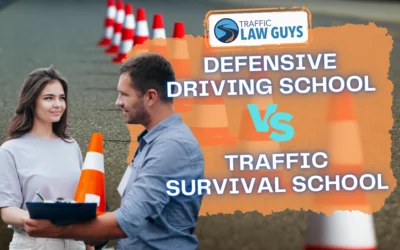Misdemeanor Pretrial Conferences In Arizona
What is a misdemeanor pretrial conference?
A pretrial conference (often referred to as a “PTC”) is the next court date in a misdemeanor criminal case after the arraignment. A PTC is typically an informal meeting between the prosecutor and the Defendant, or the prosecutor and the defense attorney if the Defendant has an attorney. This informal meeting usually takes place outside the courtroom.
In some courts outside Maricopa County, the pretrial conference may take place in the courtroom. This limits the discussion that may be had between the prosecutor and the Defendant/defense counsel. In those cases, it is wise to make sure there is some communication with the prosecutor prior to the PTC.
What happens at the pretrial conference?
In some courts, the pretrial conference may be the first opportunity for the attorney to meet with the prosecutor to discuss the case. Topics of discussion include any evidence or defenses available, as well as any opportunities to resolve the case before trial. The way the Arizona Rules of Criminal Law Procedure are written, the prosecution technically does not have to make their initial disclosures until the first pretrial conference.
If the prosecutor makes a reasonable plea offer, then it may be possible to conclude the case at the pretrial conference. If it is necessary to conduct more discovery (gather more evidence or interview witnesses), or if more time is needed to discuss settlement, the court will set another PTC in the future, usually about 30 days out.
If it is clear that no settlement can be reached, and both the prosecution and the defense feel that all discovery is concluded and there are no outstanding matters that need resolved before trial, then the court will set a trial date.
Does the Defendant need to attend the pretrial conference if they have an attorney?
The answer is often no, but if you are uncertain, you should ask your attorney. At the pretrial conference, the attorney will meet with the prosecutor, and the Defendant will usually not participate in that meeting. Although this may sound counter-intuitive, when it is just the attorney and the prosecutor meeting, it is more likely that a positive settlement discussion may occur. The interaction will probably feel less confrontational for the prosecutor if the Defendant is not present, and the discussion will probably be more candid.
Some courts may require that the Defendant attend the pretrial conferences. Other times, the attorney may want the Defendant to come for a variety of reasons. For example, if an agreement has been reached, the Defendant will need to be present to finalize that agreement. Or, if it is expected that a decision will need to be made that requires the Defendant’s input, then the Defendant may need to be present.
If a Defendant lives out of state or is otherwise geographically distant from the court, the attorney can almost always make arrangements for the Defendant to appear by telephone if their presence is required in court.
What a pretrial conference is not.
A pretrial conference is not a trial. No evidence or testimony is presented, and a judge will generally not hear any arguments relating to the merits of the case. The judge’s role in the pretrial conference is to simply make sure the case is progressing. The judge may hear arguments about procedural matters, such as discovery or timing issues, but that is about it. The judge will set a new date for another pretrial conference if one is needed.
Need help with a pretrial conference?
Send us an email below and we’ll reach out.
Latest Blog Posts
The Difference Between Defensive Driving School and Traffic Survival School
Defensive Driving School and Traffic Survival School What's the difference? Defensive Driving School (DDS) DDS in a nutshell: 4 hour class Can be taken online or in person Can take it once every 12 months to get a civil moving violation dismissed. Costs $200+,...
Civil Speeding Tickets in Arizona
Most speeding tickets are civil in nature (as opposed to criminal speeding tickets). You can usually identify if your speeding ticket is civil by looking to see if the “civil” box is checked on your ticket. A.R.S. 28-701(A) is the statute that addresses speeding.



